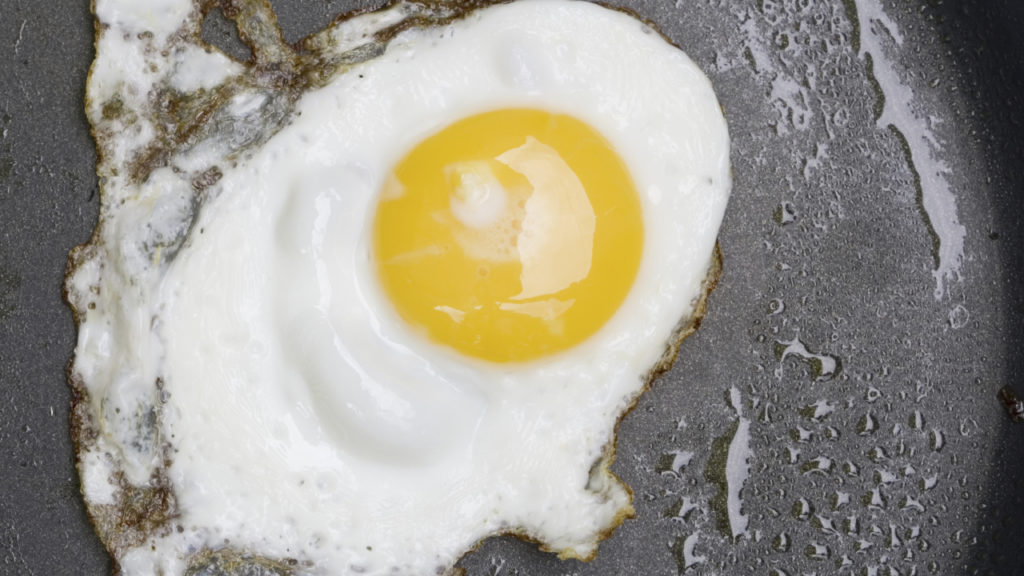There’s a moment in The Screwtape Letters where senior devil Screwtape tells apprentice devil Wormwood to keep quiet about his own existence — to delude the human he’s trying to tempt into thinking that devils, after all, can’t really exist. The recommended technique: mockery.
The fact that ‘devils’ are predominantly comic figures in the modern imagination will help you. If any faint suspicion of your existence begins to arise in his mind, suggest to him a picture of something in red tights, and persuade him that since he cannot believe in that … he therefore cannot believe in you.
Well, the devil’s gone back to his old playbook when it comes to the harm done by pornography.
I think it’s fair to say that our culture — as seen on TV, anyway — pretty much laughs off porn. Sitcoms joke about it, while crime dramas wallow in it, forever finding excuses to send detectives to strip clubs and the like.
This isn’t precisely the same thing as defending porn. But it might as well be.
That’s because no one needs to advocate for porn to spread it. Especially these days: They only need to expose people to porn (even to the idea of porn) while breaking down barriers to indulging in it. Some shows may portray it as tacky, but that’s no deterrent: If anything, it just feeds the audience’s curiosity. Rarely is porn shown as something really, seriously damaging for all the people involved — something you shouldn’t even start to consume. The prevailing attitude is that it’s no big deal — at worst a minor vice, nothing to worry about.
Well, should we worry? Christians know the answer is a no-brainer. But it doesn’t take a Christian to know the answer.
Case in point: The Witherspoon Institute issued a report called The Social Costs of Pornography that’s got contributors from a wide range of backgrounds. Christians, Jews, Muslims, secularists. Feminists and social conservatives. Professional specialists from many fields: economics, medicine, psychiatry, psychology, philosophy, sociology, journalism, law.
What do they all have in common? The more they see of the research on pornography, the more alarmed they are about it. Especially Internet pornography — because it’s accessible and streaming everywhere, and because it assaults the senses on more levels than other forms of porn.
With all these academics involved, the voice of the report is naturally a bit academic, too. It’d be a shame if that keeps anyone from heeding their warning. Above all, the part about how porn affects the brain.
Some people imagine they can just “play” or “experiment” with porn. I can’t help thinking of substance abusers who say “I can quit any time I want” — but who, of course, don’t quit. That’s an apt analogy, because porn’s effect is a lot like drugs. It’s worth excerpting the report at length to see how. It quotes Norman Doidge, M.D., of Columbia University:
Pornography is more exciting than satisfying because we have two separate pleasure systems in our brains, one that has to do with exciting pleasure and one with satisfying pleasure. The exciting system relates to the ‘appetitive’ pleasure that we get imaging something we desire, such as sex or a good meal. Its neurochemistry is largely dopamine-related, and it raises our tension level.
The second pleasure system has to do with the satisfaction, or consummatory pleasure, that attends actually having sex or having that meal, a calming, fulfilling pleasure. Its neurochemistry is based on the release of endorphins, which are related to opiates and give a peaceful, euphoric bliss. Pornography, by offering an endless harem of sexual objects, hyper-activates the appetitive system. Porn viewers develop new maps in their brains, based on the photos and videos they see.
Because it is a use-it-or-lose-it brain, when we develop a map area, we long to keep it activated. Just as our muscles become impatient for exercise if we’ve been sitting all day, so too our senses hunger to be stimulated. The men at their computers [addicted to] looking at porn [are] uncannily like the rats in the cages of the NIH [National Institutes of Health], pressing the bar to get a shot of dopamine or its equivalent. Though they [don’t] know it, they [have] been seduced into pornographic training sessions that [meet] all the conditions required for plastic change of brain maps.
In short, porn — on top of the moral arguments against it — is hardly something you can safely experiment with, then just quit when you feel like it. Because you may not feel like it. You may feel like you need more and more, even as you get less and less out of it. Which brings to mind another Screwtape line: The devil wants to give us “an ever-increasing craving for an ever-diminishing pleasure.” Along those lines, the report says,
[Porn] can render the chronic user incapable of the very sexual satisfaction that he is seeking. As one doctor specializing in neuropsychiatry related, a number of the men whom he treated in the mid-to-late 1990s had become so dependent upon pornographic images to become sexually aroused that they were no longer attracted enough to their wives to have intercourse with them. Moreover, research suggests that exposure to pornography decreases sexual satisfaction with one’s partner for both men and women.
In addition, chronic pornography use is associated with depression and unhappiness. As the doctor quoted earlier summarizes, ‘Pornographers promise healthy pleasure and relief from sexual tension, but what they often deliver is an addiction, tolerance, and an eventual decrease in pleasure. Paradoxically, the male patients I worked with often craved pornography but didn’t like it.’
It can hardly be a surprise what porn consumption does to relationships. But you might be surprised just how widespread the damage is now.
At the November 2003 meeting of the American Academy of Matrimonial Lawyers (comprising the nation’s top 1,600 divorce and matrimonial law attorneys), 62 percent of the 350 attendees said the Internet had played a role in divorces they had handled during the last year, and 56 percent of the divorce cases involved one party having an obsessive interest in pornographic websites.
Why would this happen if viewing porn were a minor pastime that could easily be controlled? Answer: It wouldn’t.
Not everyone who views porn becomes an addict. But that doesn’t mean those people aren’t damaged. In fact, “a casual, sporadic user may be harmed by his pornography habit more than a chronic, daily user,” the report notes. Porn is desensitizing: Graphic images that shock and disgust you at first do so less and less with exposure. If you view porn and don’t crave it, that doesn’t mean you’re unharmed by it. If you’re not appalled — or not as appalled as you used to be — then you’re damaged.
There’s much more to this report than can be recapped here. Suffice to say that you can’t read through it without seeing how big the problem is.
Well, almost. Because here’s the part it does take a Christian to realize: We’re in a spiritual battle. And pornography is one very powerful weapon in the devil’s hands.
Which brings us back to Screwtape one more time. “We direct the fashionable outcry of each generation against those vices of which it is least in danger,” he gloats. “Cruel ages are put on guard against Sentimentality, feckless and idle ones against Respectability, lecherous ones against Puritanism.”
You don’t play around with the devil’s work, and you don’t experiment with it. You stay away from it — as far away as you can. And you focus on higher things (Philippians 4:8).
Copyright 2010 Matt Kaufman. All rights reserved.











